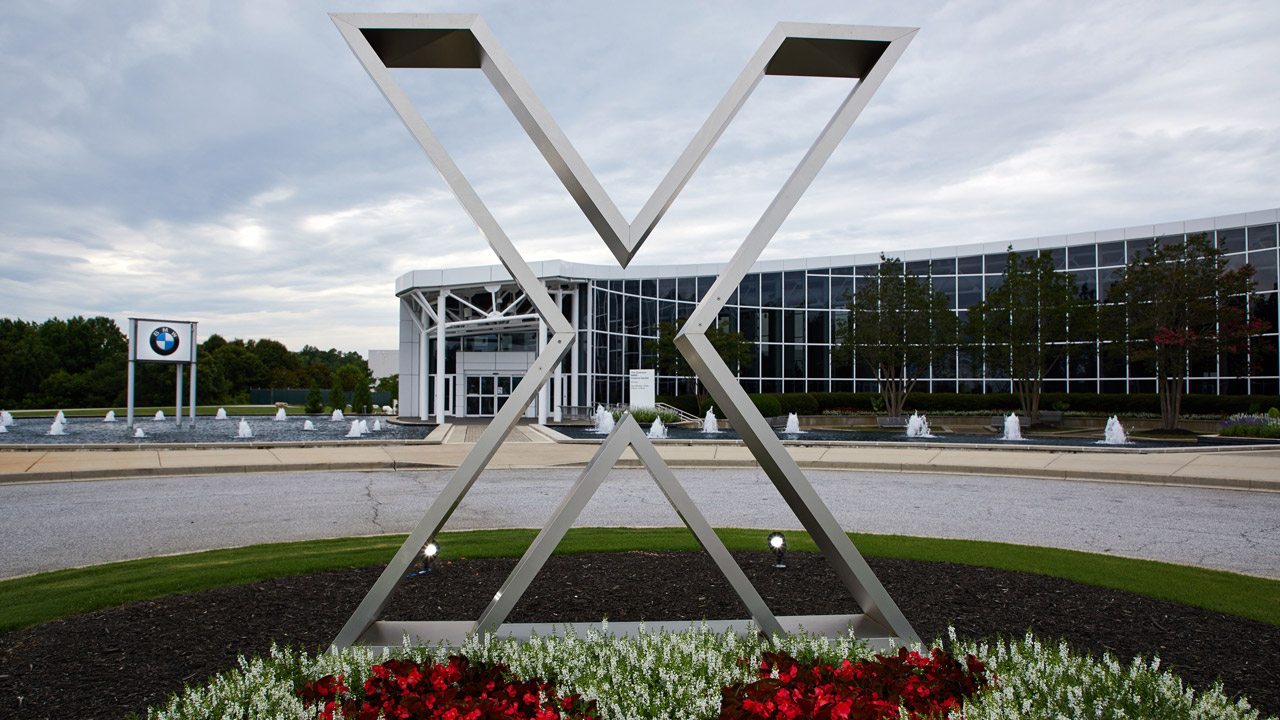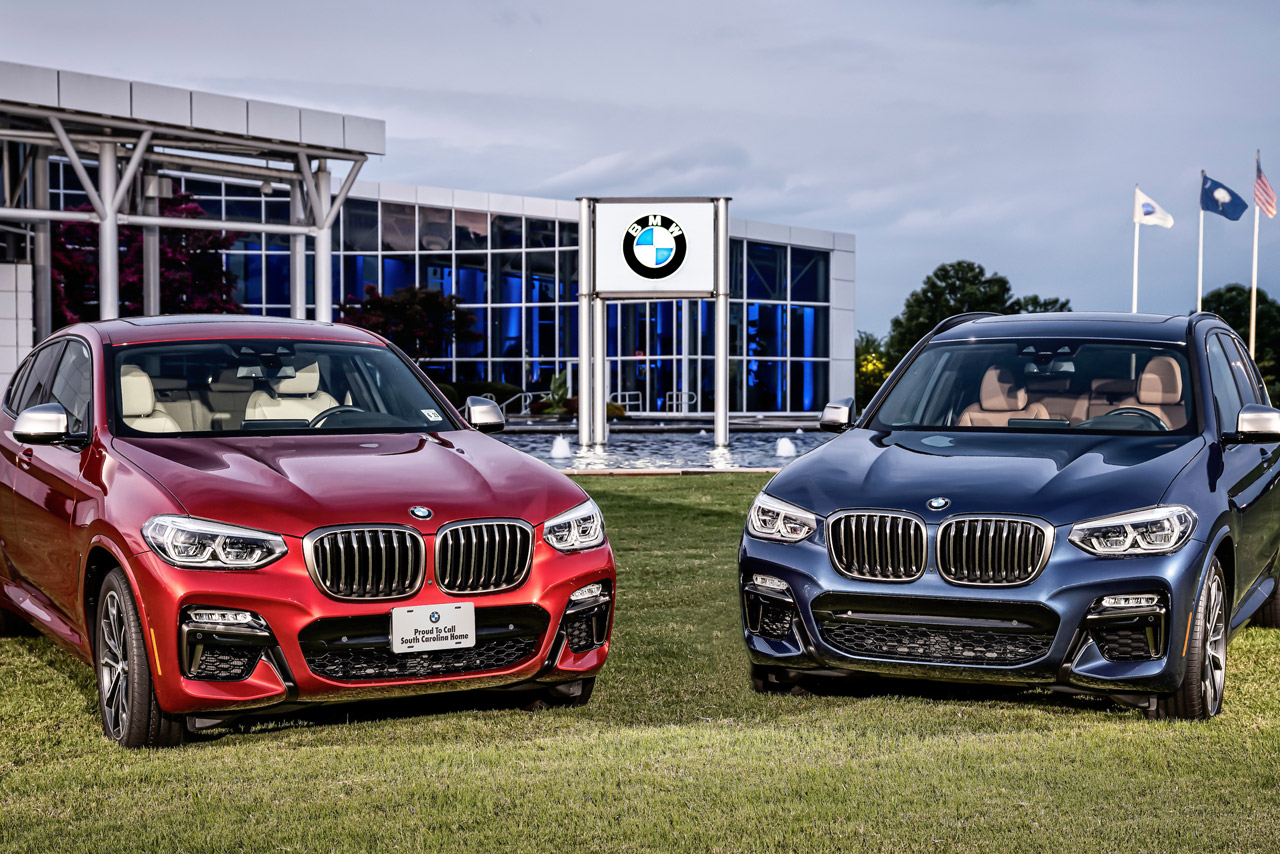- Envision AESC to Build New Battery Cell Plant in South Carolina to Supply Plant Spartanburg with Newly Developed Round Lithium-Ion Cells for BMW’s Next Generation Electric Vehicles.
- $1 Billion New Investment in Plant Spartanburg to Prepare for the Production of Battery Electric Vehicles in the U.S.
- At Least Six Fully-Electric BMW Models to be Built in the U.S. by 2030.
- Additional $700 Million Investment to Build a New High-Voltage Battery Assembly Facility in Woodruff, South Carolina Expands BMW Group Manufacturing Footprint in the State.
Spartanburg, S.C. The BMW Group continues the roll-out of its electromobility plan with a new investment in the U.S. to expand Plant Spartanburg and the company’s manufacturing footprint in the U.S. BMW Group Chairman of the Board of Management, Oliver Zipse, announced today a $1.7 billion investment in its U.S. operations, including $1 billion to prepare for the production of electric vehicles at the company’s existing U.S. manufacturing facility in South Carolina, and $700 million to build a new high-voltage battery assembly facility in nearby Woodruff, SC. By 2030 BMW Group will build at least six fully electric models in the U.S.
Zipse was joined today at at Plant Spartanburg by South Carolina Governor Henry McMaster, Secretary of Commerce Harry Lightsey III, Chairman of Spartanburg County Council Economic Development Committee, David Britt, and Woodruff, SC Mayor, Kenny Gist as he also announced an agreement to source next generation lithium-ion battery cells from Envision AESC, which will build a new plant in the state.
“For decades, Plant Spartanburg has been a cornerstone of the global success of the BMW Group. The home of the BMW X models that are so popular all over the world. Going forward, it will also be a major driver for our electrification strategy, and we will produce at least six fully electric BMW X models here by 2030. That means: The ‘Home of the X’ is also becoming the ‘Home of the Battery Electric Vehicle’,” said Zipse on Wednesday. “In addition, we can showcase BMW Group’s ‘local for local’ principle: Our newly developed sixth generation battery cells, which were specifically designed for the next generation electric vehicles, will be sourced here in South Carolina – where X goes electric.”
Envision AESC Battery Cell Plant in SC to Supply Plant Spartanburg.
In line with the principle of "local for local,” the BMW Group aims to purchase battery cells for its electric vehicles where production takes place. The company has found a partner in Envision AESC, which will build a new battery cell factory in South Carolina, to supply Plant Spartanburg. Envision will produce newly developed round lithium-ion battery cells, which were specifically designed for the sixth generation of BMW eDrive technology, and will be used in the next generation electric vehicles. The annual capacity of the battery cell factory will be up to 30 GWh.
The new battery format will increase energy density by more than 20 percent, improve charging speed by up to 30 percent and enhance range by up to 30 percent. At the same time, CO2 emissions from cell production will be reduced by up to 60 percent through the partial use of secondary lithium, cobalt and nickel material, as well as renewable energy for production.
The cooperation with Envision AESC is an important step in the BMW Group's plan to strengthen its regional supply chains. The expansion of electric vehicle production in combination with a local battery cell factory will lead to the creation of new supply chains, new networks for sub-suppliers, and new jobs throughout the entire region.
BMW Group has already announced that four additional battery cell factories will be built in Europe and China to meet its demand for next generation battery cells. The cell factories are being built by partners and will each have an annual capacity of up to 20 GWh.
Increased Investment and Expanded Manufacturing Capacity in SC.
Of the new $1.7 billion investment announced today, $700 million will be used to build a new high-voltage BMW battery assembly center in Woodruff, SC, near Plant Spartanburg. The new facility will encompass over 1 million sq. ft., and produce next generation batteries for fully electric vehicles. More than 300 new jobs will be created on site.
Plant Spartanburg currently produces lithium-ion battery modules for the two plug-in hybrid electric vehicles built at the plant, the BMW X3 xDrive30e and BMW X5 xDrive45e. In 2021, nearly 70,000 electrified BMWs were built on site. The site in Woodruff will also leverage the experience and expertise developed in Plant Spartanburg’s existing operations at the new facility.
“BMW’s sustained and impactful presence in South Carolina demonstrates the power of partnership and shared commitment to our state’s automotive industry success,” said Governor McMaster. “With today’s announcement of a $1 billion expansion to Plant Spartanburg for manufacturing electric vehicles as well as $700 million for a new plant in Woodruff to assemble battery units, the road to the future is here. And I applaud BMW on helping lead the way.”

BMW Group Plant Spartanburg.
Plant Spartanburg was established 30 years ago and began producing vehicles two years later. Since then, the plant has become the global center of competence for BMW Sports Activity Vehicles and a critical component of the company’s global production network. The plant currently represents an investment of nearly $12 billion, employs more than 11,000, and has an annual capacity of up to 450,000 vehicles. To date more than six million BMW vehicles have been built in the U.S. – for the U.S. and global markets. Based on this strength, BMW has been the largest automotive exporter from the U.S. by value for the past eight years.
Plant Spartanburg currently produces 11 models including the BMW X3, X4, X5, X6 and X7 Sports Activity Vehicles, four BMW M models and two plug-in hybrid electric models. Production of the all-new hybrid-electric BMW XM will begin later this year.
The plant is supported by more than 300 suppliers in the U.S., including over 40 direct tier 1 suppliers in South Carolina alone.
“This is a very important step for Plant Spartanburg as we continue our legacy of producing high-quality vehicles, and build on the success of the last 30 years,” said Robert Engelhorn, President and CEO, BMW Manufacturing Co. “With this latest investment, we futureproof our operations and prepare the plant for electrification and new technologies, ensuring both the long-term success of our company and our position as an attractive and viable employer in the state of South Carolina.”
Ongoing Commitment in the U.S.
In addition to sales and marketing operations, the BMW Group footprint in the U.S. consists of nearly 30 locations in 12 different states, including an advanced design studio, a technology research and development center, and a venture capital fund in California, BMW Group Financial Services, and BMW Manufacturing Corporation, which operates Plant Spartanburg in South Carolina. The BMW Group dealer network consists of nearly 650 independently owned BMW, MINI, Rolls-Royce and BMW Motorrad dealers nationwide. Taken together, the BMW Group’s operatons in the U.S. directly and indirectly provide and support more than 120,000 jobs in the U.S., and has contributed $43.3 billion to the U.S. economy.
“Technology Openness” and Customer Focused Flexibility.
BMW Group is clearly focused on a sustainable future and shares common ambition in the U.S. with regard to climate goals and the reduction of greenhouse gas emissions. At the same time, the company is following a path of “technology openness” to offer a choice of fully electric, plug-in hybrid electric, and highly-efficient internal combustion options to its customers in meeting their diverse needs in vastly different geographies across the nation. BMW Group is committed to fulfilling its goal of making a minimum of 50% of its global sales battery electric vehicles by 2030.
360-Degree Approach.
BMW Group has also set an initial target to reduce CO2 emissions by 40% per vehicle by 2030. As BMW Group works towards the goal of climate neutrality, the company is focused on the reduction of CO2 emissions throughout a vehicle’s entire life cycle.
- Design and Engineering: Beyond simply electrifying its product portfolio, BMW Group begins the design and engineering phase of vehicle development with a ‘secondary first’ approach, so that currently on average nearly 30 percent of materials used in BMW Group vehicles are recycled or reused. In the longer term, the “secondary first” approach aims to increase this figure to 50 percent.
- Supply Chain and Procurement: BMW Group has been actively involved for many years in initiatives to develop standards for responsible raw material extraction and promote compliance with environmental and social standards for raw material extraction through certification of mines. The cobalt and lithium used as raw materials for the new generation of BMW battery cells will be sourced from certified mines which allows the company retains full transparency over extraction methods and ensures responsible mining.
- Vehicle Production: BMW Group’s global production network also relies on renewable energy such as solar, wind, and hydroelectric power in the manufacturing phase of its vehicles. All of the company’s production sites have been net CO2 neutral by offsets since 2021.
- Vehicle Use Phase: BMW Group is also working to ensure that the electricity generated to charge battery electric vehicles is done so sustainably. For example, partnerships with dairy farms in California reduce greenhouse gas emissions by capturing methane gas and transforming it into renewable energy, which is exported to the power grid. The company also operates a pilot program called ChargeForeward in the San Francisco Bay Area which makes it possible for owners to charge their vehicles with as much solar energy as possible.
- Vehicle Recycling & Post-Life: From the start BMW Group vehicles are designed with recycling in mind, thereby improving the possibility for components to be recycled or reused. The company has already demonstrated the ability to recover more than 90% of the material from high-voltage batteries and has approximately 3,000 collection points worldwide for the recycling of end-of-life vehicles.
As the BMW Group continues towards an electric future, the company is looking beyond the vehicles themselves to ensure that it delivers sustainable solutions across the value chain and throughout the entire lifecycle of the vehicle. In the U.S. BMW currently offers two fully electric vehicles including the BMW iX Sports Activity Vehicle and the BMW i4 Gran Coupe. The fully electric BMW i7 Sedan will come to market later this year and BMW will make another significant step forward. For more information about the BMW Group’s focus on sustainability and unique approach to electrification, please visit: https://www.bmwgroup.com/en/sustainability.html
Please Note:
To the extent that historical press releases reference BMW Manufacturing Co., LLC as the manufacturer of certain X model vehicles, the referenced vehicles are manufactured in South Carolina with a combination of U.S. origin and imported parts and components.


